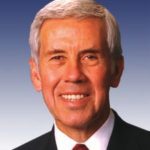
Senator Dick Lugar (R-Indiana) sent one of his senior Senate Foreign Relations Committee staff members to Cuba from January 11-14, 2009, charged with the task of evaluating U.S. policy toward the island. His staff’s interviews with government officials, foreign diplomats, members of the clergy, international media, Cuban entrepreneurs and Cuban citizens were distilled into a report released Monday with the suggestive title, “Changing Cuba Policy—In the United States National Interest.”
Lugar opens the report himself by presenting a simple, reasonable argument for changing policy. The stated goal of the embargo when it was enacted 47 years ago was to bring “democracy to the Cuban people,” he says, and it has failed to accomplish that objective. Thus, while criticism of the Castro regime is justified, U.S. policy toward Cuba has been ineffective and should change in order to achieve U.S. interests.
The staff member who designed the report itself, Carl Meacham, proposes five modest changes to current policy: the resumption of bilateral talks on migration and drug interdiction; mutual investments in alternative energy; increased legal agricultural trade; opening medical trade; and using bipartisan, multilateral and international efforts to engage the island.
Migration, drug trafficking, energy and trade are concerns of both countries—concerns that each party would better tackle with the cooperation of the other—and Meacham demonstrates this clearly with evidence from his fact-finding trip. He, Senate staff and Senator Lugar do not endorse the lifting of the embargo, but do look forward to cooperating with the European Union, the World Bank, the International Monetary Fund and the Inter-American Development Bank in order to pursue “sequenced engagement” whose effect would be “to the benefit of the security and prosperity of the United States.” As complex as the policy-making process is in the United States, this report is likely to receive more attention in Congress than many previous attempts to relay a similar message to decision-makers, as it is from a highly respected Senator and an important Committee.